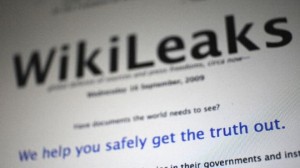EA WorldView | December 3, 2010
By Dr. Scott Lucas
“The GPO [Green Movement] has a strong ‘brand’ – green, freedom, peace signs, silent marches, stolen election and martyrs like Neda Agha Soltani. But like the regime that seeks to crush it, the GPO is not monolithic. To characterize the GPO’s active core as now primarily (but not exclusively) university students and university-age youth in a country so demographically young (for example, approximately one quarter of the population is in its twenties) is not to belittle its potential. Outside of the active GPO core group there is a larger, relatively passive group, whose support now mostly manifests in the anonymous shouts of ‘God is Great’ from night-time North Tehran rooftops or who scrawl or stamp anti-regime slogans on ten thousand Toman currency notes. Presumably many of them have fled the field due to fear of regime reprisal but might be drawn back into the fray if the prospects of a GPO victory, however defined, became more real to them than the prospect of blows from a Basiji baton.”
This is an essential document, as it reveals — in each and every detailed paragraph — how US diplomats in the field viewed not only the Green Movement but also other groups, inside and outside the establishment, involved in the political conflict in Iran.
Read almost a year later, this January 2010 assessment from the US Consulate in Dubai stands up well in many respects. It is a nuanced view of the “Green Path Organization”, the different factions manoeuvring around and against President Ahmadinejad, and the bases of power in the regime. It does not offer easy answers as to what might happen in Iran but lays out the short-term and long-term possibilities.
There is a slight “tilt” in the analysis towards the idea of confrontation between the Government and the forces around former President Hashemi Rafsanjani, but this is a natural outcome of the reality that some of the Consulate’s key sources come from the Rafsanjani camp.
The much bigger questions are whether the US Government officials in Washington took notice of this assessment, whether they appreciated its nuanced analysis, and whether it entered their deliberations over policy toward the Iranian regime, the Green Movement, and other groups in the country.


